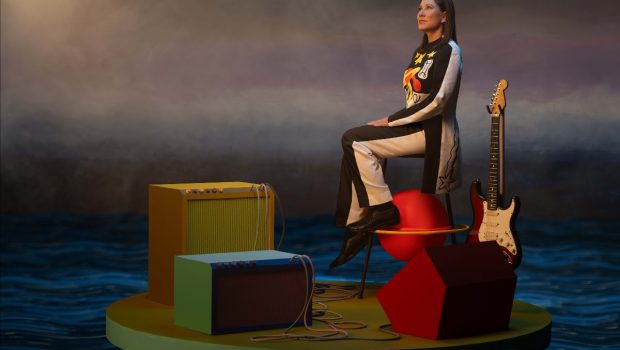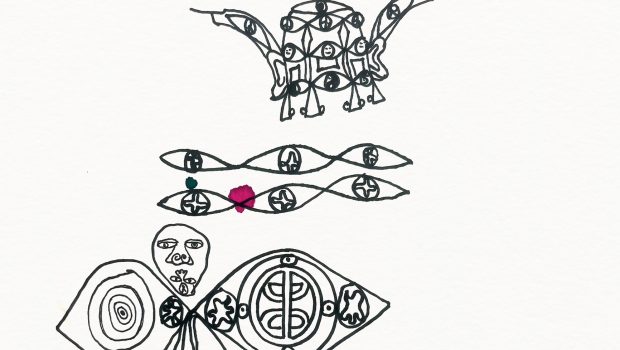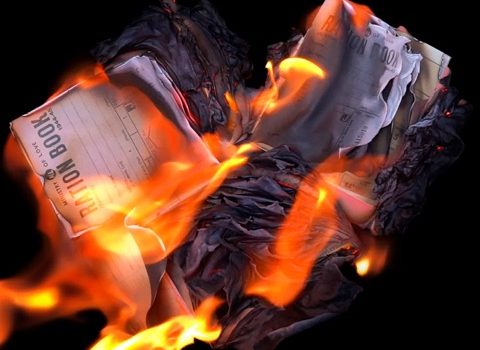 I am always suspicious of hype. The build them up to knock them down process seems unhelpful to all involved. Add in that the choice of acts or scenes for mass championing has often been bewildering with, in many cases, the recipients being distinctly ordinary. The buzz surrounding The Last Dinner Party has grown deafening in recent months with them being awarded both the Brits Rising Stars award and the BBC Radio 1’s Sound of 2024. Under those circumstances, I was glad to have heard their first single ‘Nothing Matters’ at random on Radcliffe and Maconie’s 6Music show last summer and instantly been attracted by the way it combined melody and drama, shuffling familiar elements (including glam, the staccato feel of early Sparks and an ABBA-esque sense of melody) into startling forms with a lyrical edge, delving into themes of domination (“I will fuck you like nothing matters”.)
I am always suspicious of hype. The build them up to knock them down process seems unhelpful to all involved. Add in that the choice of acts or scenes for mass championing has often been bewildering with, in many cases, the recipients being distinctly ordinary. The buzz surrounding The Last Dinner Party has grown deafening in recent months with them being awarded both the Brits Rising Stars award and the BBC Radio 1’s Sound of 2024. Under those circumstances, I was glad to have heard their first single ‘Nothing Matters’ at random on Radcliffe and Maconie’s 6Music show last summer and instantly been attracted by the way it combined melody and drama, shuffling familiar elements (including glam, the staccato feel of early Sparks and an ABBA-esque sense of melody) into startling forms with a lyrical edge, delving into themes of domination (“I will fuck you like nothing matters”.)
Following a few tempting singles, the release of debut album ‘Prelude To Ecstasy’ offers the fullest opportunity to decide whether they warrant the fuss made so far. For a band whose nascent reputation has been based primarily on their theatrical gigs, it seems appropriate that the album has the pacing of a live set, starting with the 96 second ‘Prelude’, an instrumental piece of orchestral grandeur. It has the air of introductory music designed to build up feverish anticipation before the band bound on stage to cheers. Like a perfectly judged opening, the initial trilogy of songs is a high-octane dose of adrenaline and drama which are the album’s overwhelming sensations. ‘Burn Alive’ sees “candlewax burning in my veins” while ‘Caesar on a TV Screen’ scorches through a pleasing set of tempo changes and enough melodies to sustain a career in its Shakespearean tale of ego and gender (“When I put on the suit / I don’t have to stay mute / I can talk all the time / Cause my shoulders are wide” and “For a second, I could be one of the greats.) The drum opening to ‘Feminine Urge’ recalls a Phil Spector production, while a church organ guides it to a close.
After the full throttle opening, ‘On Your Side’ shows more restraint and a more sympathetic lyric (“when it’s 4 am and your heart is breaking / I will hold your hands to stop them from shaking”) within its tale of a toxic relationship. With its piano and flute intro courtesy of Aurora Nishevci and Emily Roberts respectively, ‘Beautiful Boy’ shows a capacity for musical loveliness and is immaculately paced as it gradually builds and Abigail Morris’s voice swoops and rises.
While the overwhelming influences and echoes in their sound are artists whose creative peaks were 40 to 50 years ago (Bowie, Sparks, Kate Bush), TLDP manage to sound timeless rather than dated. They also have the capacity to travel in surprising directions, never more in evidence than on the 89-second ‘Gjuha’ which has the tone, texture and atmosphere of something from ‘Le Mystère des Voix Bulgares’.
‘Sinner’ returns to the formula of piano pounding and layering of voices that characterises their up-tempo numbers, albeit with Roberts’ lead guitar more prominent than otherwise. ‘My Lady of Mercy’ begins with the command “take me back to your swimming pool you lovely little fool”, continues the rockier feel and has an impressive set of twists and turns together with a hearty sense of throwing the kitchen sink and any other utensils to hand at it. The song ruminates on a girl looking at a picture of Joan of Arc, being struck by her bravery and wanting to kiss her. It reflects the themes of female desire running through the album. Weighing in at a shade under five minutes and starting with a piano line, ‘Portrait’ has the revelation, “I felt like one of those portraits of a woman protected by a beast on a chain”. As heavy orchestration develops, the vocals and song construction are reminiscent of lamentably under-appreciated 90s prog-tinged indie pop band Sidi Bou Said. This may well not be a direct influence on a young band but is indicative of how their sound finds echoes in unexpected places.
The aforementioned ‘Nothing Matters’ feels like a crowd-pleasing finale. In that context, the brooding near five-and-a-half-minutes of ‘Mirror’ could be an encore suggesting a future direction. An orchestrated outro feels tagged onto the track but also gives a sense of symmetry to ‘Prelude to Ecstasy’.
Ultimately, the album is a compact 12-track, 40-minute statement of intent. TLDP’s sense of grandeur, mischief, melody and energy give the record a compelling sense of immediacy. There is huge potential here and the possibility of developing a long-lasting creative reputation. Hopefully, the unusual way in which they have developed the early years of their career suggests they can avoid being dragged down by massive expectation and the album/tour/album treadmill.
The Last Dinner Party: Prelude To Ecstasy – Out 2nd February 2024 (Island Records)
















